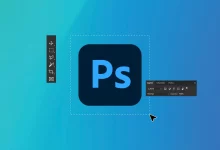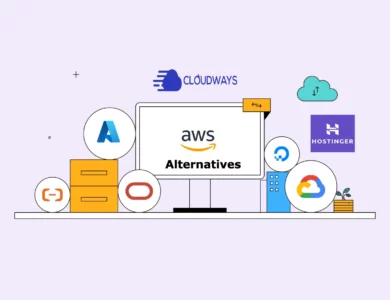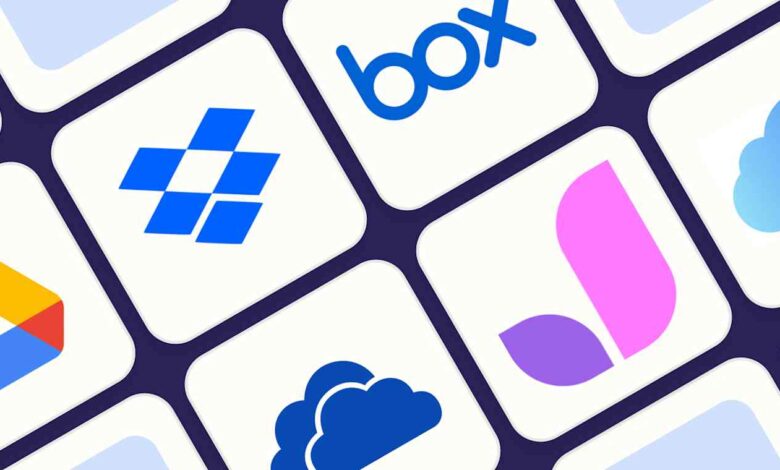
Storing and syncing files in the cloud makes things simpler and keeps your files safe. The best cloud storage services help you easily share and access files from any place and restore them if something goes wrong.
What Can Cloud Storage Do for You?
Cloud storage services let you store things like Word docs, PDFs, photos, and spreadsheets, and access them anytime. They also automatically make backups of your files. Some services allow several people to edit the same file at once.
1. Microsoft OneDrive
Microsoft OneDrive is a cloud storage service that lets you save and sync files across different devices. You can store documents, photos, videos, and more. It works on Android, iOS, macOS, and Windows.

Pros:
- Easy-to-use interface: The design is simple and user-friendly.
- Works on multiple devices: You can access it from phones, tablets, and computers.
- Smooth integration with Microsoft 365 and Windows: If you already use Microsoft Office apps or a Windows PC, OneDrive works perfectly with them, making your files easier to manage.
- Great for photos: It has strong features for organizing and sharing photos online.
- Easy sharing and editing: You can share files and work on them together with others in real-time.
- Special features for businesses: Some features are available only to organizations, like better control over files and more storage options.
Cons:
- Limited free storage: You only get 5GB of free space, which is less than some competitors.
- New features for businesses: Some of the best features are reserved for business users, so personal users might miss out on some benefits.
Why We Picked It:
OneDrive is a solid storage and syncing option for most people. It works well on all major devices and is very easy to use.
If you’re already using Microsoft 365, you can get extra storage and benefit from the deep integration with Office apps.
It’s a great choice if you need to back up your files, including photos and documents, automatically. It’s also affordable because you can get more storage by subscribing to Microsoft 365, which includes Office apps like Word and Excel.
Who It’s For:
OneDrive is perfect for anyone who regularly uses Microsoft 365 apps or Windows. It’s especially useful if you want your Desktop, Documents, and Pictures to be safely backed up to the cloud and restored when you get a new PC.
It’s also a good choice for people looking for good value in online storage and syncing. Free users can store up to 5GB of data, which is decent, although not the largest free offering out there.
Specs & Configurations:
- File Size Limit: 15GB
- Free Storage: 5GB
- Features:
- Office Apps integration
- Online file editing
- File versioning (keep track of file changes)
- Available apps for Windows, iOS, and Android.
2. Proton Drive
Proton Drive is a cloud storage service that focuses on keeping your files secure and private.

Pros:
- Fully encrypted files: This means your files are locked up and can only be opened by you, ensuring privacy.
- Flexible sharing options: You can share your files in different ways, like links or with specific people.
- Protected by Swiss privacy laws: Switzerland has some of the strictest privacy laws in the world, so your data is well-protected there.
- Free tier available: You can start using it for free, with 5GB of storage space.
Cons:
- Somewhat slow upload speeds: Due to the high level of security and encryption, it can take longer to upload files.
- No Linux app: If you’re using Linux, you can’t use the Proton Drive app directly (it only works on Windows, iOS, and Android).
Why We Picked It:
Proton Drive is the best for privacy and security. Everything you store is encrypted, and only you hold the key to access it.
Not even Proton employees can read your files. Plus, if you want to protect your identity further, you can even send cash to the company instead of using a credit card.
Who’s It For?
If you’re someone who really cares about security and privacy, Proton Drive is great for you.
However, it’s not ideal if you need fast speeds or want features like editing documents with others. It also doesn’t support macOS or Linux.
Specs & Features:
- Focus: Privacy
- File Size Limit: Unlimited (You can upload as much as you need)
- Free Storage: 5GB
- No online editing features: You can’t edit documents directly within Proton Drive.
- File versioning: It keeps track of different versions of your files.
3. IDrive
IDrive is an online storage and backup service that allows you to store and sync files from multiple devices. Here’s a breakdown of its features and benefits:
Pros:
- Free local backup: You can back up your data on your own external storage or network drive.
- Unlimited devices: You can use your IDrive account on an unlimited number of devices, which makes it very flexible.
- Fully encrypted: All your files are secured with encryption, so only you can access them.
- Fast upload speeds: Files upload quickly to the cloud, making it efficient.
- Excellent value: You get a lot of storage space for a relatively low price.
- Affordable add-on for backups: You can pay a little extra to back up your Microsoft and Google accounts as well.
Cons:
- Storage isn’t unlimited: There is a storage limit, so you need to manage your space.
- Limited Linux support: It doesn’t work as well with Linux systems, so it’s not the best option for users with that operating system.
- Complete disk image backup only for Windows: If you need a full backup of your system’s disk, it’s only available for Windows devices.
Why We Picked It:
IDrive is a great option if you want the best storage deal for your money. It offers lots of space and doesn’t limit how many devices you use. It’s also a reliable service with apps for major platforms like Windows, Mac, iOS, and Android.
One key feature is its ability to back up files to an external hard drive or network drive. It also allows you to create a complete backup of your computer (disk image), but this feature is only available for Windows.
Moreover, IDrive lets you find and restore deleted files with its archiving feature.
Who It’s For:
IDrive is ideal for anyone who wants to store lots of data online at an affordable price.
It’s especially useful for people who need backup options for multiple devices and want to make sure their files are safely archived.
Specs & Features:
- Main focus: Backup
- File size limit: 2GB per file
- Free storage: 10GB
- Online editing: Not available
- File versioning: Keeps versions of files, so you can access older versions if needed
- Available apps: Windows, iOS, and Android apps available for easy access and management of your backups
4. Google Drive
Google Drive is a cloud storage service where you can store your files online. You can access your files from any device, anywhere, as long as you have an internet connection.

Google Drive allows you to upload photos, documents, videos, and much more. It’s a great place to save files and share them with others.
Pros
- Generous free storage space: Google gives you 15GB of free space, which is more than many other cloud storage services.
- Great for collaboration: If you work with others on documents, Google Drive is perfect. It works seamlessly with Google Docs, Google Sheets, and other Google apps to help you collaborate on files with ease.
- File syncing: It can automatically sync files between your devices, so whatever you work on gets updated across your computers and phones.
- Third-party integrations: Google Drive works well with many other apps that aren’t made by Google, making it very flexible.
- Cross-platform apps: It has apps for Windows, iOS, and Android, so you can use it on many devices.
Cons
- No password protection for shared files: Files shared with others don’t have built-in password protection, meaning anyone with the link can access them.
- Anyone can add files: If someone has your email address, they can add files to your Google Drive, which could be annoying.
- Multiple apps needed: To use all features (like editing or photo management), you need to use different apps, which might feel complicated.
- Privacy concerns: Some people worry about privacy, as Google can access data on the platform, which may raise concerns for sensitive information.
Why have We Picked?
Google Drive is easy to use and has become more user-friendly over the years. It’s an excellent choice if you use Google Docs, Sheets, or other Google apps. It also offers 15GB of free storage, which is quite generous.
However, if you need more space, you can subscribe to Google One for extra storage and additional features. Google One includes 100GB of space for just $1.99 per month and offers other perks like phone support, discounts, and a VPN service.
Who Should Use?
Google Drive is perfect for people who regularly work with Google Docs or Google Sheets, or anyone who needs an easy way to store and share files online. It’s also great for those who want 15GB of free storage and need to sync files across multiple devices.
Specs & Features
- Focus: File storage, sharing, syncing, and working together on documents.
- File Size Limit: You can upload files up to 5TB in size.
- Free Storage: You get 15GB of free storage when you sign up.
- Online Editing: Google Docs, Sheets, and other apps let you edit documents directly in the browser.
- File Versioning: Google Drive keeps old versions of your files, so you can see changes over time.
- Available on: Windows, iOS, and Android devices.
5. Sync
Sync is an online storage tool that helps you keep your files safe and easily accessible on different devices. Here’s a simple explanation of its features:
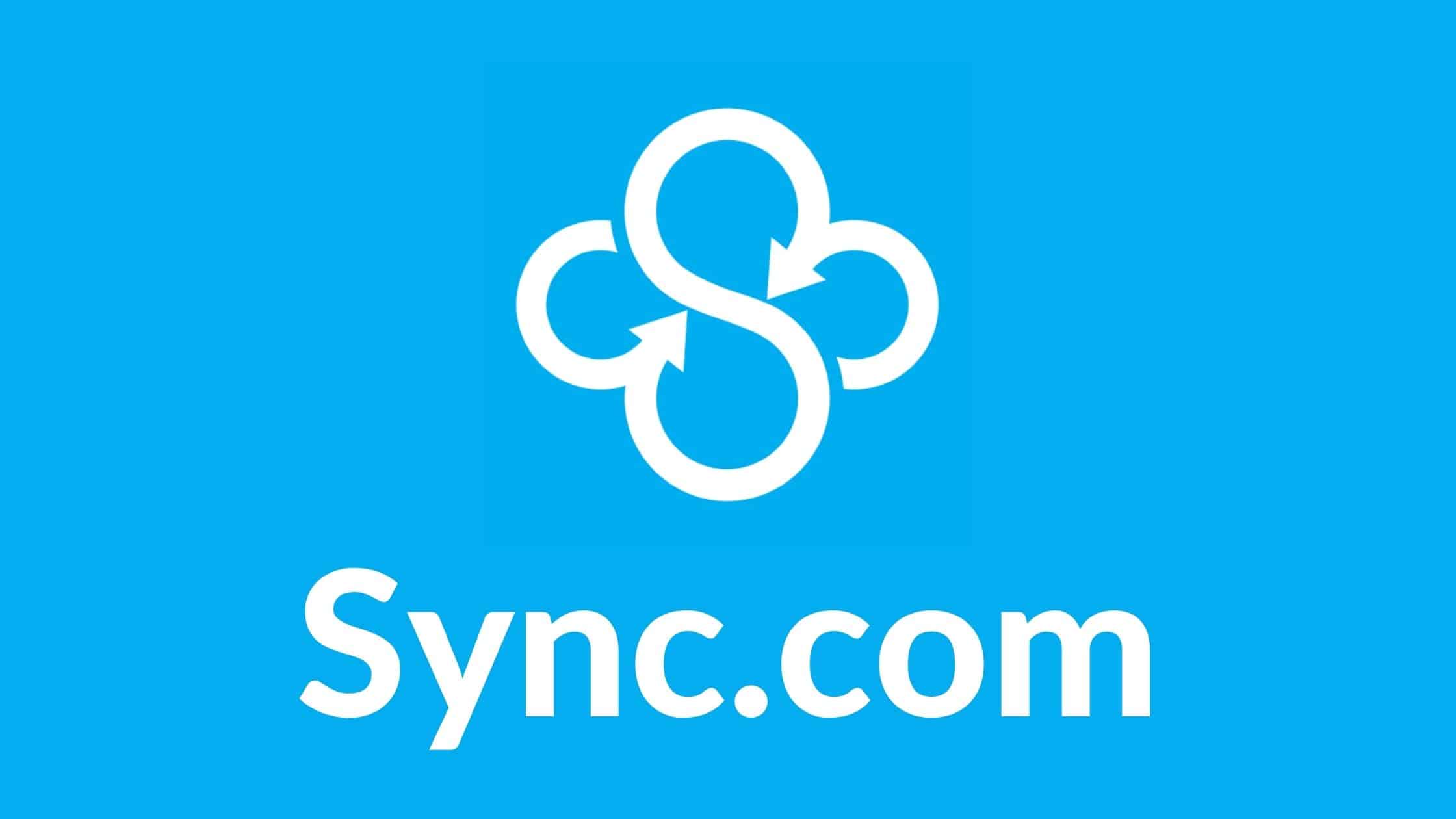
Pros:
- Extremely easy to use: Sync is very simple to navigate and doesn’t require technical skills to operate.
- Client-side encryption: This means only you can access your files. Sync cannot view or open your files because they’re encrypted before being uploaded.
- Multiple sync and download options: You can sync and download your files on many devices without much hassle.
- No file size limits: You can upload and store files of any size.
Cons:
- Lacks local area network syncing: You can’t sync files between devices on the same local network without an internet connection.
- Only offers annual plans: Sync doesn’t have month-to-month payment options; you need to pay for a full year upfront.
Why We Picked It:
Sync is a reliable and user-friendly tool that allows you to store and sync your files across up to five devices. We love how easy it is to use.
For $96 a year, you get 2TB of storage, which is a good price compared to other services. It works on most devices like Windows, macOS, iOS, Android, and on the web, but doesn’t support Linux.
Who It’s For:
Sync is perfect for people who want a simple and easy way to store files online without dealing with complicated features. It’s great for anyone who wants to avoid storing files with big tech companies.
It also has a free account with 5GB of space, which is good for light users. However, if you use Linux, this service isn’t for you as it doesn’t have an app for Linux.
Key Features:
- Simplicity and ease of use: Sync is designed to be straightforward and user-friendly.
- File size limit: You can upload files of any size without restrictions.
- Free storage: 5GB of free storage space is provided.
- Versioning: Sync keeps different versions of your files so you can recover previous versions if needed.
- Apps: Sync has apps for Windows, iOS, and Android, but not for Linux.
6. Apple iCloud Drive
Apple iCloud Drive is a cloud storage service that helps you store and access your files like photos, documents, and settings.

It works really well with Apple products like iPhones, iPads, and Macs, making it easier to keep your data safe and synced across devices.
Pros:
- Works well with Apple devices: iCloud Drive is tightly connected with all Apple devices, so if you use an iPhone, Mac, or iPad, it’s easy to store and access your files.
- 5GB of free storage: When you start using iCloud, you get 5GB of storage for free, which is enough for basic use like storing photos, notes, and small files.
- Low cost: If you need more storage, you can upgrade for a small monthly fee, starting at just $0.99 per month for 50GB.
- Works with Windows and web access: Even though it’s designed for Apple, you can also use it on Windows computers or access your files through a web browser.
Cons:
- Limited sharing: You can only share files with people who also have an Apple ID, which makes it less convenient if you want to share files with non-Apple users.
- No Android or Linux apps: Apple iCloud Drive doesn’t have apps for Android or Linux, so if you use these systems, you’re out of luck.
Why We Picked It:
Apple iCloud is a great option for iPhone, Mac, and iPad users who don’t want to deal with complicated setups for backing up and syncing their data.
It’s easy to use, reliable, and stores your most important things like photos and documents without hassle.
However, it may not be ideal if you want more control over your storage or need features like search when using the web version.
Who It’s For:
iCloud Drive is best for people who use Apple products and don’t want to worry about manually backing up files or syncing them between devices.
If you use up your free 5GB of space, you can upgrade to a paid plan for more storage.
Specifications:
- Designed for: People using Apple devices like iPhones, iPads, and Macs.
- File size limit: 15GB (meaning no file can be larger than this size to upload).
- Free storage: 5GB of space for free when you sign up.
7. Box (Personal)
Pros:
- Flexible Web App: You can open your files in Box using other desktop software, which gives you more options to work with them.
- Integrations: Box works with over 1,500 different apps. This makes it easier to connect Box with other services you might use.
- Offline Access: You can access your files even when you don’t have an internet connection.
- Free Version: Box offers a free version with 10GB of storage space, which is a decent amount for personal use.
Cons:
- Expensive: The paid versions of Box can be pricey when compared to how much storage they give you.
- Low File-Size Limit: You can only upload files that are 5GB or smaller, which might be limiting if you have bigger files.
- No Custom Location for Syncing: You can’t choose where Box syncs your files on your desktop; it automatically sets the location.
Why We Picked It?
Box stands out because it connects with many other services and has a flexible web app that lets you open files using desktop software. While it’s not the cheapest option, its free version offers a good amount of storage (10GB).
Who It’s For?
Box is best if you’re okay with having only 10GB of storage for free and don’t mind paying for more storage later.
It’s particularly helpful for businesses because of its many integrations and features. But if you’re just using it for personal storage, other options might suit you better.
Specs & Configurations:
- Emphasis: Best for business use, and it works well with different apps.
- File Size Limit: The maximum file size you can upload is 5GB.
- Free Storage: You get 10GB for free.
8. Dropbox
Dropbox is a popular cloud storage service that allows you to store and access your files online.
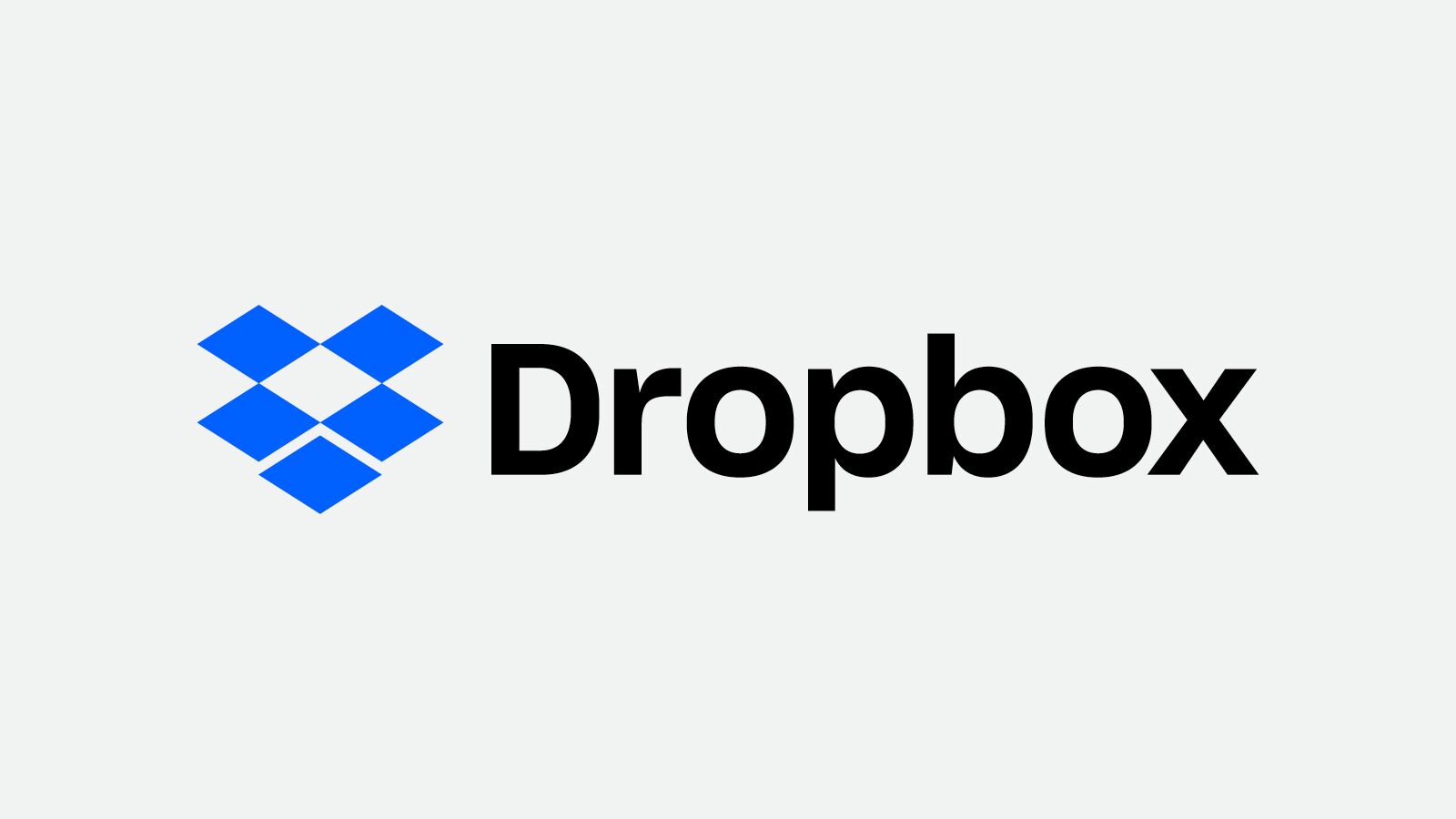
Pros:
- Plenty of additional features: Dropbox offers extra tools like e-signatures and collaboration features.
- Integrations with thousands of applications: You can connect Dropbox with many other apps you might already use, like Google Docs or Microsoft Office.
- Fast upload speeds: Files can be uploaded quickly, which is helpful when you need to access or share them fast.
Cons:
- Expensive: Dropbox can be costly, especially if you need more storage space.
- Overly complex: Some people find Dropbox’s features a bit too complicated for simple tasks.
Why We Picked It?
Dropbox has been around for a long time and is known for being reliable. Even though it’s not always the cheapest option, it offers solid features and integrations that many users find useful.
Who It’s For?
Dropbox is great for people who have been using it for a long time and don’t want to switch to a new service.
It’s also good for those who need to integrate with many other apps and want a stable service, even if it’s not the most affordable.
Specs & Configurations:
- Emphasis: Simple to use, focused on ease.
- File Size Limit: No limit on the file size you can upload.
- Free Storage: You get 2GB of free storage when you sign up.


